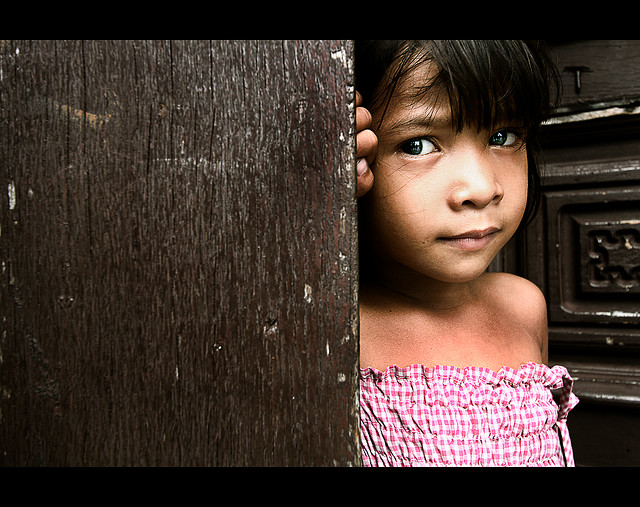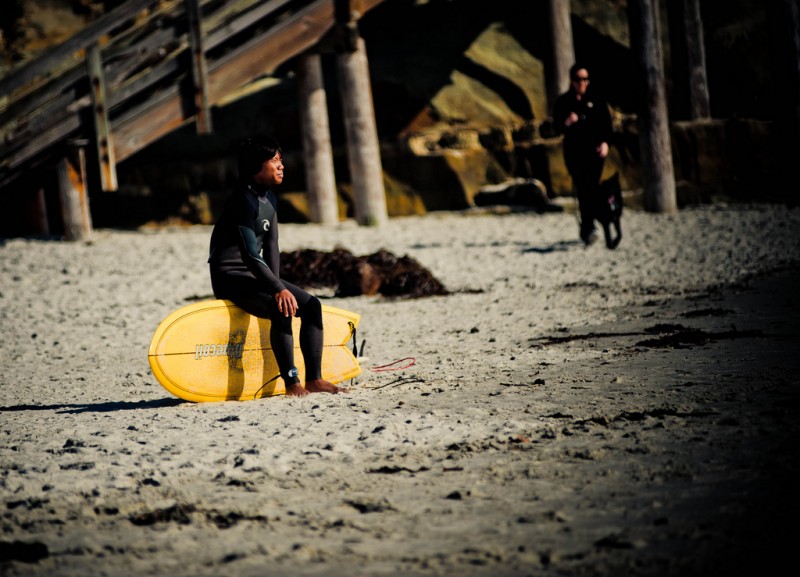Proverbs are typically reserved for Grandmotherly advice and religious fables but they can also offer timeless wisdom worth taking heed of.
Vagabondish is reader-supported. When you buy through links on our site, we may earn a small affiliate commission. Read our disclosure.
Here are five clichéd proverbs that can be translated into quality travel advice.
#1: You can lead a horse to water, but you can’t make it drink”¨
Traveler Translation: There are some problems in the world that you will never change.
It’s the classic first-time traveler syndrome that some of us (myself included) never seem to grow out of – the belief that we can truly change the world for the better. Wanting to help certainly isn’t a bad thing, but all-too-often we lose sight of the bigger picture and charge in thinking we can right the world’s wrongs.
As an English teacher in the developing world I’ve made my fair share of misjudgments over the years. I once purchased a cell phone for one of my student’s birthdays. It was a seemingly innocent act of generosity that soon backfired when he followed me around for the next few months begging me for phone credit, candy, an iPod and endless other requests. (I’ve since learnt gold stars and stickers to be better-placed rewards).
Often it is the smallest and simplest things that can have the biggest impact over time.
I realized that whilst I could make a valuable contribution to these childrens’ education, I could not solve their poverty or right the imbalances between us. And throwing money at the problem was only further highlighting this. The point is that these everyday injustices are not going to change overnight and we can often do more harm than good by trying to ”˜fix’ things ourselves.
Instead, focus on the things that you can affect: your interaction with locals; the examples you set for local children; the contributions you can make by working or volunteering abroad; and the organizations that you support as you travel. Often it is the smallest and simplest things that can have the biggest impact over time.

Only Hope in Manila, Philippines © Roy Yap
#2: The proof of the pudding is in the eating.
Traveler Translation: To fully understand something you need to experience it yourself.
Maybe I just read too many guidebooks or listen to too many other traveler’s tales, but often I arrive at a destination feeling that I already know what to expect. I’ve snubbed tourist traps for selling out before ever considering what made them so popular in the first place and worried myself sick about traveling in ”˜dangerous’ countries that turned out to be relatively safe.
I’m not denying how useful a bit of preparation can be, but sometimes I have to remind myself that advice is never a viable substitute for experience. I am constantly surprised when I fall head-over-heels for places other travelers have loathed or find myself absorbed by traditional pastimes I’d written off as boring (origami, for example — who’d have known the folding of colored paper could be so therapeutic and addictive?).
The key is to remember that everyone experiences places differently and so often it is the people you meet or the events that unfold that make a place special. Take advice and recommendations on board but don’t let them stop you from discovering a place for yourself.
#3: Money makes the world go aroundӬ
Traveler Translation: The developing world needs money from tourism; as long as we spend it wisely.
When I arrived in Indonesia, the first words I mastered in Bahasa were ”˜No, thank you’. I haggled for street food, walked everywhere, did my own laundry in the guesthouse washbasin and stocked up on supermarket snacks to avoid pesky bus vendors.
I was fiercely proud of my budget traveler ways until one evening the owner of my guesthouse confronted me. “You come to our country, but you do not help the people,” he observed, clearly confused by my money-scrounging ways. “I have a cook and a cleaner, because they need jobs,” he told me proudly. “My wife could do it but now these two women have jobs and can feed their families. We make good money so we share it.” It was an important lesson for me.
I learnt that while I might be averse to being charged extortionate ”˜tourist’ rates or aimlessly handing out dollars to beggars, I have a responsibility as a traveler to help create and sustain jobs for locals. By spending wisely, I can impact in some small way on many of the locals around me without having to increase my budget.
Follow the three golden rules: buy from local businesses, eat at smaller restaurants or street stalls and try not to do something yourself that you could pay someone else to do (paying a local tailor to fix your backpack, for example, or getting your laundry done for you). It might be a different way of thinking for the average Westerner, but if you truly believe in supporting sustainable travel, this is undoubtedly the way to do it.

Surfer Waits for Better Waves, California © Chris Willis
#4: It’s no use crying over spilt milk”¨
Traveler Translation: When bad things happen, accept it and move on.
As much as I relish the freedom of the road, I’m nagged by the assumption from friends and family back home that I am on some kind of eternal holiday. Traveling – particularly the months-on-the-road ventures on tight budgets – is hard work and every task you carry out presents a new challenge. It’s inevitable that things will not always go to plan.
Accepting that bad things happen is an essential fact of life for those choosing to spend any stretch of time backpacking. You will lose things. You will have things stolen (probably shiny, expensive things that you would least like to part with). You will get sick — if you’re lucky it’ll be a stubborn cold or a 48-hour bout of traveler’s diarrhea — if not, you’ll end up tackling an exotic disease or some kind of intestinal worm. You will almost certainly find yourself the victim of an attempted (or successful) scam at some point.
Prepare yourself for the worst by accepting that these are all possibilities. That doesn’t mean worry yourself unnecessarily but simply be assured that you are prepared for and capable of dealing with anything that comes up. Don’t let it keep you from traveling — embrace the uncertainty and accept that in choosing to live spontaneously and vicariously, you may occasionally undergo the odd setback.
#5: The grass is always greener on the other side
Traveler Translation: Borrowing, sharing and exchanging cultural practices and knowledge allows us to incorporate the best parts of different cultures into our own.
Experiencing a new country or culture is a surefire way to highlight both the good and bad in our home country and never is this more obvious than in the developing world. Whilst so many of our local peers long for the education, financial security and opportunities of the Western world, Westerners often find themselves feeling nostalgic for the simple existence that still prevails in many areas of the world.
Whilst no one would wish for the poverty or political issues that often go with it, a more sustainable lifestyle with freshly grown local produce and tight-knit family communities can nonetheless be an attractive prospect to those escaping the hectic lifestyles of America or Europe.
The key is to find a balance and once we stop bemoaning our own materialistic lifestyles or our host country’s corruption or injustices, we can start to measure the good and bad from both places. There are certain things we could undoubtedly learn from the developing world and the shift in values that many returning travelers speak of is testament to this. But hopefully we will return home with not only new ideas to incorporate into our own lives, but with a deeper understanding and appreciation for our home country’s assets — a stable economy, democracy, quality healthcare — that we missed out on before.


